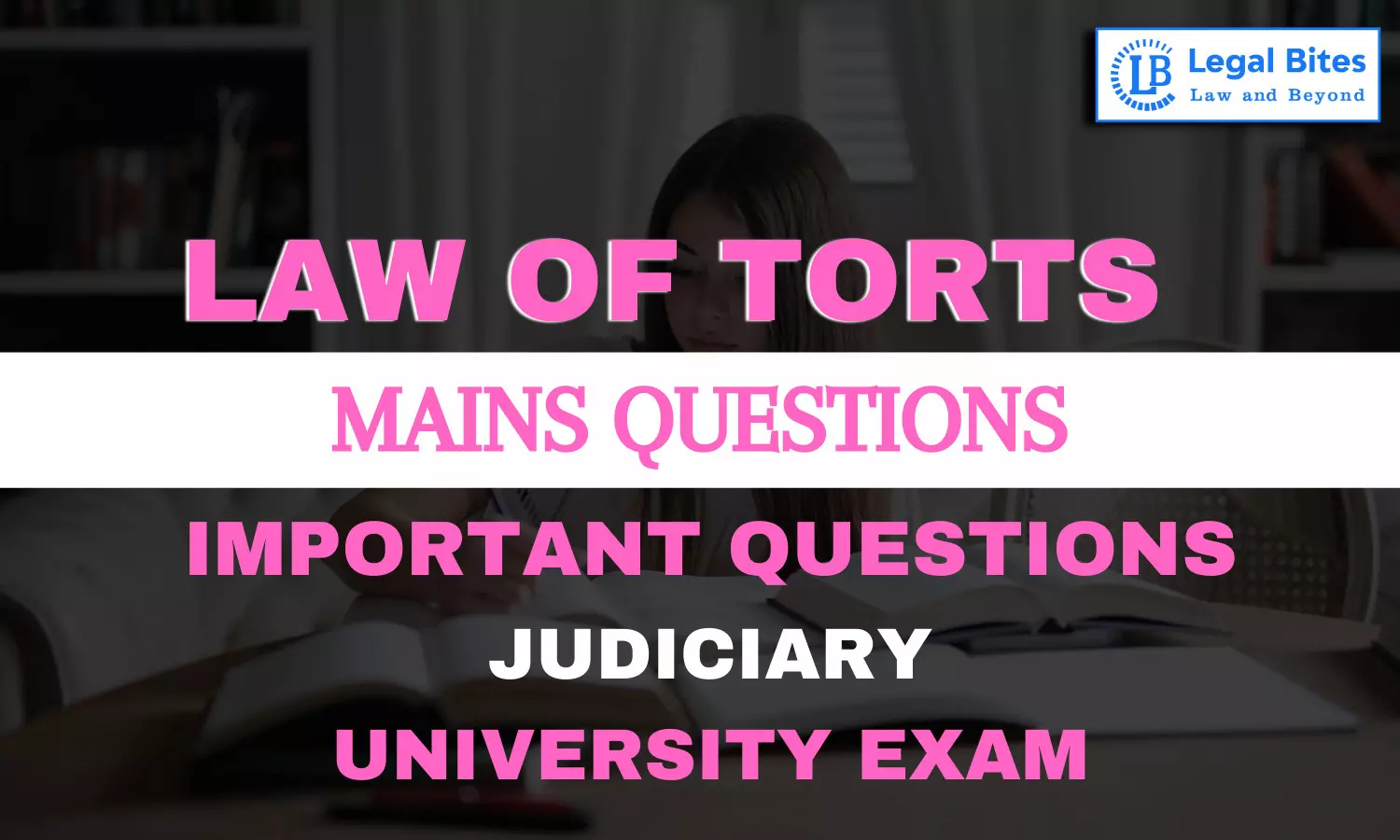Define "Tort" giving two illustrations and distinguishing it from breach of contract.
Find the question and answer of Law of Torts only on Legal Bites.

Question: Define "Tort" giving two illustrations and distinguishing it from breach of contract. [UPJS 1986]Find the question and answer of Law of Torts only on Legal Bites. [Define "Tort" giving two illustrations and distinguishing it from breach of contract.]AnswerA Tort is a civil wrong that results in harm or injury to another person or their property. It is a legal term used to describe a wide range of wrongful actions that are committed by an individual or a group of people. The...
Question: Define "Tort" giving two illustrations and distinguishing it from breach of contract. [UPJS 1986]
Find the question and answer of Law of Torts only on Legal Bites. [Define "Tort" giving two illustrations and distinguishing it from breach of contract.]
Answer
A Tort is a civil wrong that results in harm or injury to another person or their property. It is a legal term used to describe a wide range of wrongful actions that are committed by an individual or a group of people. The primary purpose of tort law is to compensate the victim for the harm they have suffered, rather than punishing the wrongdoer.
Here are two illustrations of torts:
Negligence: If a person is driving recklessly and causes an accident that results in injuries to another person, that is an example of negligence. The injured party can sue the reckless driver for damages, including medical expenses and pain and suffering.
Defamation: If a person makes false statements about another person that damage their reputation or cause them harm, that is an example of defamation. The injured party can sue for damages, including compensation for harm to their reputation.
Tort and breach of contract are both legal concepts that describe different types of civil wrongs. Here are the main differences between the two:
- Definition: A tort is a civil wrong that causes harm or injury to another person or their property, which is not based on a contract. A breach of contract, on the other hand, is a failure to perform an obligation that was promised under a contract.
- Nature of the claim: A tort claim is a claim for damages resulting from a wrong or injury caused by someone else, such as negligence, intentional harm, or strict liability. A breach of contract claim, on the other hand, is a claim for damages resulting from a failure to perform an obligation that was promised under a contract.
- Proof: In a tort case, the plaintiff must prove that the defendant's actions caused the harm or injury and that the defendant was negligent, intentional or strictly liable. In a breach of contract case, the plaintiff must prove that the defendant failed to perform a contractual obligation that was agreed upon.
- Damages: In a tort case, damages may be awarded for physical harm, emotional distress, and loss of property or income. In a breach of contract case, damages are awarded for the loss of the value of the contractual obligation that was not performed.
- Remedies: The remedies available for tort and breach of contract claims are also different. In a tort case, the plaintiff may seek compensation for damages caused by the defendant's wrongful conduct. In a breach of contract case, the plaintiff may seek specific performance (forcing the defendant to perform the contractual obligation), or damages for the loss caused by the breach.
In summary, a tort is a civil wrong that causes harm to another person or their property, while a breach of contract is a failure to perform an obligation that was promised under a contract. The main differences between the two are the nature of the claim, the proof required, the damages that may be awarded, and the remedies available.

Mayank Shekhar
Mayank is an alumnus of the prestigious Faculty of Law, Delhi University. Under his leadership, Legal Bites has been researching and developing resources through blogging, educational resources, competitions, and seminars.
